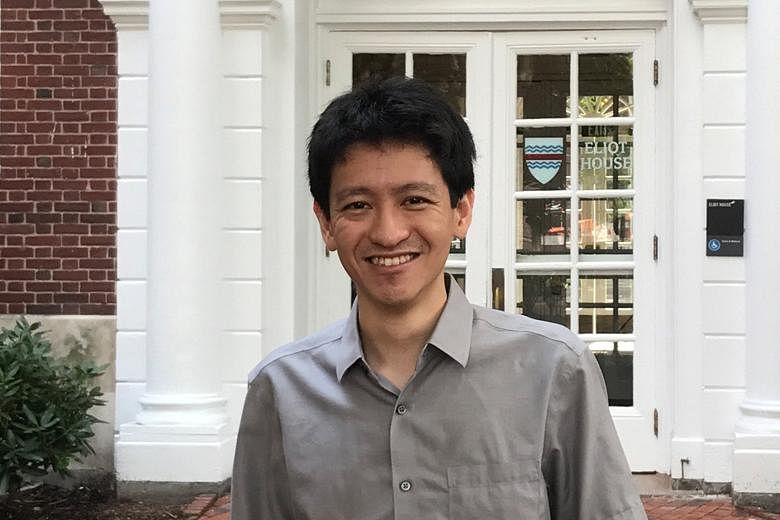SINGAPORE - Mr Li Shengwu, 32, may have put his Facebook privacy settings on "friends only" when he published a post that allegedly attacked the independence of Singapore's judiciary, but this does not entitle him to claim privacy, the Attorney-General's Chambers (AGC) has argued.
It made the point in written submissions it had filed in the High Court, for initiating contempt of court proceedings against Mr Li, the nephew of Prime Minister Lee Hsien Loong.
The AGC said that as he chose the medium of publication, it should be taken that he was fully aware the post could be disseminated to a broader audience.
This could, therefore, "pose a real risk of undermining public confidence in the administration of justice", it added in documents obtained by The Straits Times on Friday (Dec 8).
The papers, filed in August, set out the arguments for AGC moving forward with its case against Mr Li , the eldest son of Mr Lee Hsien Yang and a junior fellow at Harvard University in Massachusetts in the United States.
Documents also revealed he had been served court papers on Oct 17 at his work space at the university by a US-based legal services firm.
This was after "multiple unsuccessful attempts" made at Harvard University, and at his home in Cambridge.
The US firm tried 11 times on seven different occasions between Oct 2 and Oct 14, but to no avail, according to the court documents.
On Monday, Mr Li's lawyers in Singapore said they needed time to address the "novel grounds'' the AGC used to justify serving the papers out of its jurisdiction.
They said they would be applying to the High Court to set aside the court order that allowed the AGC to serve papers on their client in the US.
The case centres on a July 15 Facebook post in which Mr Li said "the Singapore Government is very litigious and has a pliant court system", and that foreign media had been cowed into self-censorship because of previous legal action.
Although the post was set to a "friends only" privacy setting, it was published by several websites and circulated on social media.
Mr Li previously said it was not his intent to attack the judiciary.
He also said he would not have given approval for his private post to be shared publicly and was, thus, not responsible for its "widespread and unauthorised publication".
The post was related to a family dispute over the fate of founding Prime Minister Lee Kuan Yew's home at 38, Oxley Road. It spilled into the public sphere in June.
The AGC argued that for the case to proceed, it is not necessary to prove Mr Li intended to undermine public confidence, only that he intentionally published the post.
This intentional act, it said, was "indisputable".
Mr Li subsequently amended parts of it, but AGC said his amendment of the post to clarify its meaning showed he was aware the phrase "pliant court system" was open to being understood at face value.
The AGC added that it could be taken to mean the Singapore judiciary is "easily influenced".
While there is also evidence suggesting Mr Li was in Singapore when he published the post, said the AGC, "it is irrelevant whether the material was posted outside Singapore".
It added: "Since it can be accessed in Singapore, its publication occurs in Singapore."
The next pre-trial conference for the case is expected to take place on Jan 4.


